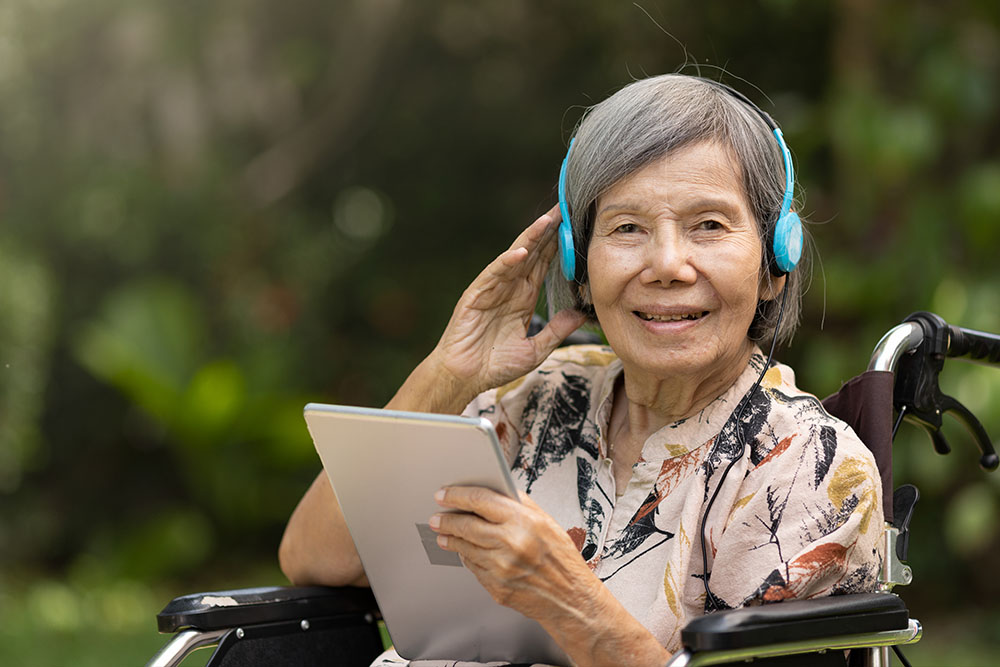
Senior Living
“Music is the universal language of mankind.” – Henry Wadsworth Longfellow
As the universal language of mankind, music fosters connection, provides comfort and can help older adults living with cognitive decline or memory impairment to access memories.
Springpoint at Home’s Aging Life Care Advisor™/Care Manager, Bettyann Cramer-Manchin, has witnessed over the last 30 years how music has touched her clients. She has used the music of Bob Hope with veteran reminiscence groups to tap into memories and witnessed how they will hum or tap their toes. “When people living with a memory impairment can no longer tell you their story, you can learn about them through the music they like.”
Research has shown that older adults retain musical memories more clearly than non-musical memories. The reason may be found in the fact that responding to music is innate because music is part of human biology and neurology. Research also shows that music can alter brain chemistry, affect heart and breath rate and blood pressure.
You often hear of pregnant women singing to the baby in utero and the baby responding before and after birth. It makes sense because music is a way of connecting with this new life. It is also a way of connecting at the end of life.
You may find a person living with dementia responds to a piece of music with tears, but those may be happy tears because it is bringing back a memory of dancing to this song at their child’s wedding. Connecting to past experiences through music is not something that has to be processed verbally. Sitting with them, holding their hand and smiling or humming the song connects you to them in a powerful way.
We connect to music through rhythm as well. Our bodies automatically respond to the rhythm of music even if we have no musical training. This type of engagement comes naturally, even if someone is living with a progressive brain disease. Music is one of the last things a person in late-stage dementia can respond to.
Here at Springpoint at Home, we believe in the ways that music can increase quality of life and help overcome feelings of isolation, anxiety and depression that can occur when verbal communication diminishes. It is why we believe that music can foster meaningful interactions.
Our Certified Home Health Aides and Aging Life Care Advisor™/Care Managers can help older adults connect to beloved music through rhythm, encouraging tapping of toes, swaying or clapping hands. And it has the added benefit of connecting the caregiver to their client.



